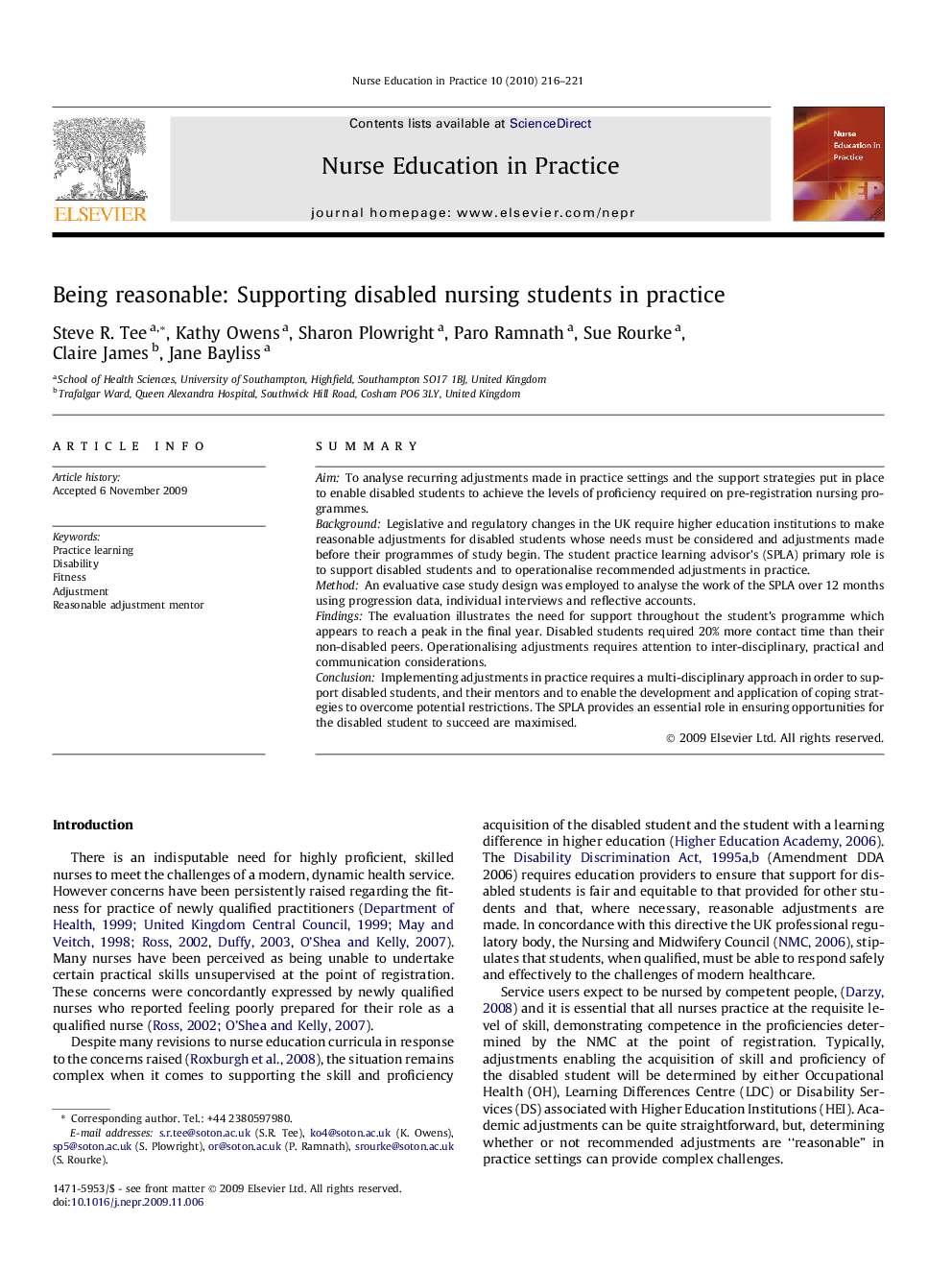| Article ID | Journal | Published Year | Pages | File Type |
|---|---|---|---|---|
| 367016 | Nurse Education in Practice | 2010 | 6 Pages |
SummaryAimTo analyse recurring adjustments made in practice settings and the support strategies put in place to enable disabled students to achieve the levels of proficiency required on pre-registration nursing programmes.BackgroundLegislative and regulatory changes in the UK require higher education institutions to make reasonable adjustments for disabled students whose needs must be considered and adjustments made before their programmes of study begin. The student practice learning advisor’s (SPLA) primary role is to support disabled students and to operationalise recommended adjustments in practice.MethodAn evaluative case study design was employed to analyse the work of the SPLA over 12 months using progression data, individual interviews and reflective accounts.FindingsThe evaluation illustrates the need for support throughout the student’s programme which appears to reach a peak in the final year. Disabled students required 20% more contact time than their non-disabled peers. Operationalising adjustments requires attention to inter-disciplinary, practical and communication considerations.ConclusionImplementing adjustments in practice requires a multi-disciplinary approach in order to support disabled students, and their mentors and to enable the development and application of coping strategies to overcome potential restrictions. The SPLA provides an essential role in ensuring opportunities for the disabled student to succeed are maximised.
